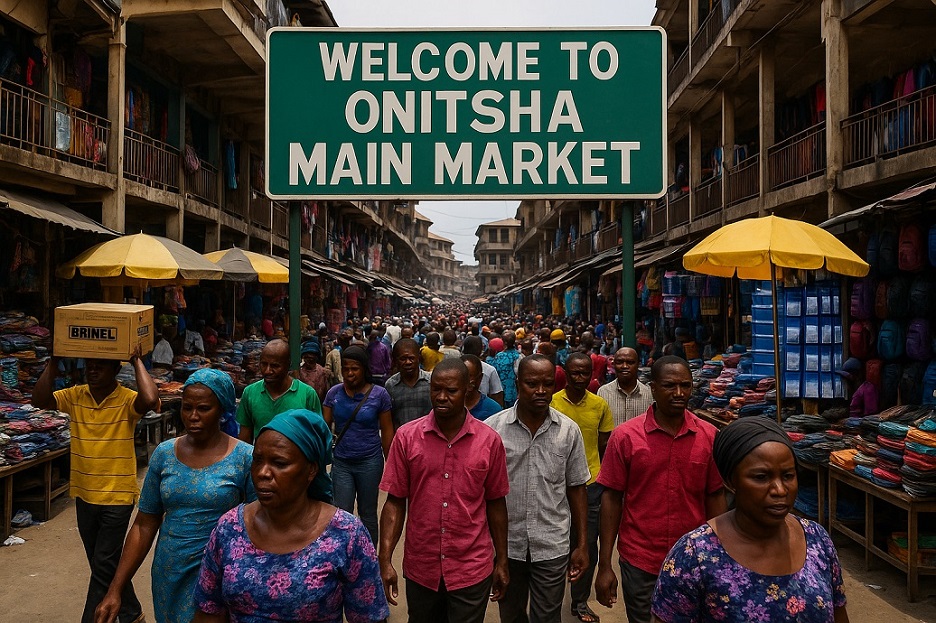
The Igbo Business Mentality and Market Dominance Across Africa
Bongo Music Africa
Author
The Igbo Business Mentality: How Culture and History Fuel Market Dominance Across Africa
The Igbo people of southeastern Nigeria are renowned for their entrepreneurial spirit. From the bustling markets of Lagos to the commercial hubs of Accra, Igbo traders are often at the forefront of commerce. As one of Nigeria's largest ethnic groups, the Igbos are celebrated for their remarkable success in business. But what drives this dominance?
Scholars point to a combination of cultural traits—ambition, individualism, and adaptability—paired with strong community support systems. In this article, we’ll explore the historical origins and cultural foundations of the "Igbo business mentality" and how these factors have enabled Igbo entrepreneurs to thrive across Africa.
The Historical Roots of Igbo Trade
Long before Nigeria’s colonial era, Igboland had a vibrant trading culture. By the 18th and 19th centuries, the Aro Confederacy—centered in Arochukwu—controlled much of the regional commerce, including participation in the Atlantic slave trade. Igbo merchants traded palm oil, textiles, and other goods along the Niger River and with neighboring communities.
During British colonial rule, Igbo traders expanded across West Africa, establishing themselves in cities like Lagos, Accra, and Abidjan. However, the Biafran War (1967-1970) disrupted this progress. Markets were destroyed, including Onitsha Main Market—then Nigeria’s largest trading hub. Yet, in true Igbo fashion, recovery was swift.
By the 1970s, Igbo traders had rebuilt Onitsha Main Market, transforming it into one of Africa’s largest commercial centers. Similarly, Aba’s Ariaria Market—reconstructed after a fire in 1976—became a powerhouse for shoes and leather goods. This resilience underscores the Igbo reputation for bouncing back stronger in business.
The Cultural Foundations of Igbo Entrepreneurship
Igbo success isn’t just about history—it’s deeply rooted in culture. The Igbo worldview blends individual ambition with communal support, creating a unique ecosystem for business growth.
Key Cultural Drivers of Igbo Business Success
- Achievement Orientation
- From a young age, Igbo children are taught to strive for success. Wealth and business acumen are seen as sources of pride, not just for individuals but for entire families.
- Communal Support Networks
- Extended families and town unions provide financial backing, mentorship, and trade connections. When one person succeeds, the entire community benefits.
- The Igba-boi Apprenticeship System
- A centuries-old tradition, Igba-boi involves young apprentices working under established traders (called Oga) for years. After training, the mentor provides startup capital (a "settlement") to launch their own business. This system has produced generations of entrepreneurs.
- Adaptability & Mobility
- Igbo traders are known for their willingness to travel and adapt. Many start by buying goods in one city and selling in another, gradually expanding across borders.
Igbo Market Dominance in Eastern Nigeria and Beyond
The impact of these cultural and historical factors is evident in Eastern Nigeria’s thriving markets:
- Onitsha Main Market is officially the largest market in Africa by size and trade volume, attracting buyers from Ghana, Cameroon, Niger, and beyond.
- Ariaria International Market (Aba) is nicknamed the "China of Africa" for its locally made shoes, bags, and leather goods, exported across the continent.
These markets are more than just trading hubs—they’re engines of economic mobility, embodying the Igbo philosophy that commerce is life.
Notable Igbo Entrepreneurs: From Small Traders to Industry Leaders
Many of Nigeria’s top business magnates started as small-scale Igbo traders:
- Dr. Cletus Ibeto began as a spare-parts apprentice at 13. Today, the Ibeto Group is a multimillion-dollar conglomerate exporting cement, auto parts, and more across West Africa.
- Innocent Chukwuma (Innoson Motors) started by importing motorcycle parts before launching Nigeria’s first indigenous car manufacturing company.
Other examples include Air Peace (Allen Onyema), Capital Oil (Ifeanyi Ubah), and countless import-export empires—all built on the Igbo model of apprenticeship, reinvestment, and expansion.
Conclusion: Why the Igbo Business Model Thrives
The Igbo business mentality is a powerful blend of history, culture, and resilience. From pre-colonial trade networks to post-war rebuilding, Igbos have turned challenges into opportunities. Their emphasis on individual drive, communal support, and mentorship creates a self-sustaining cycle of entrepreneurship.
Today, Igbo traders and business leaders continue to shape markets across Africa. Understanding their cultural foundations helps explain why—whether in Onitsha, Aba, or Accra—the Igbo entrepreneurial spirit remains unmatched.
What lessons can other entrepreneurs learn from the Igbo model? Ambition, adaptability, and strong networks are key. And as history shows, with the right mindset, even the most disrupted markets can be rebuilt into thriving empires.
What do you think? Have you encountered Igbo traders in your local markets? Share your thoughts in the comments!

